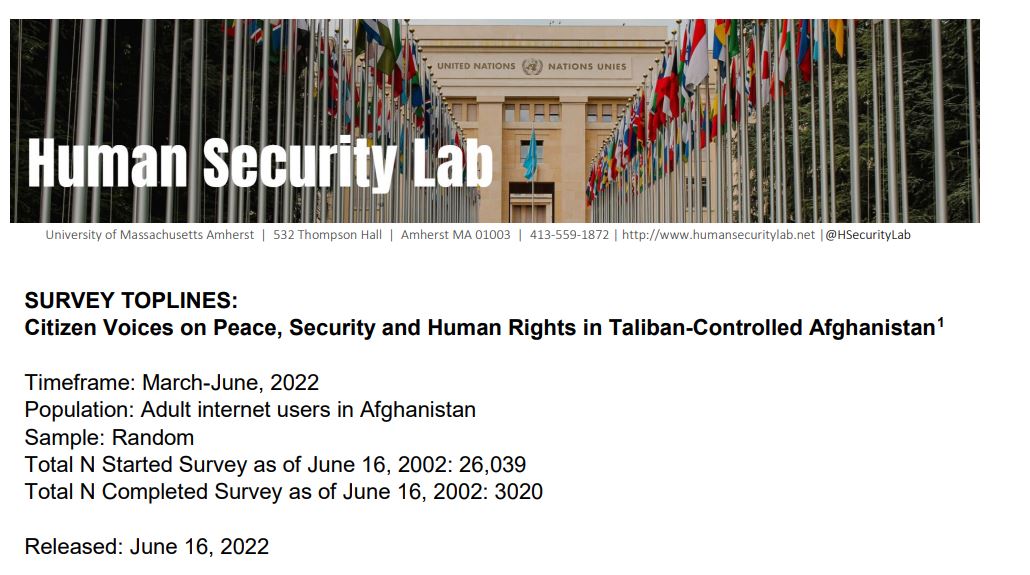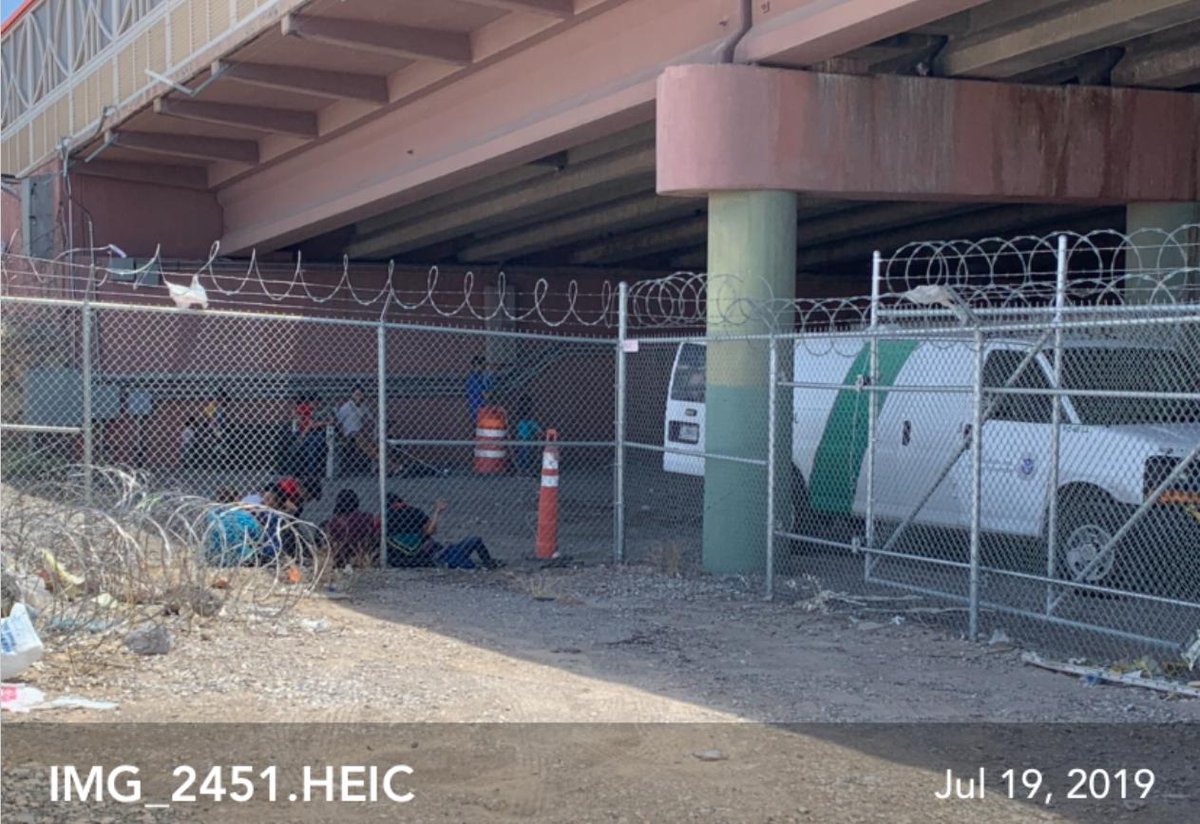
THREAD: My new @WPReview column draws on @HSecurityLab’s new survey data from #Afghanistan to show that paying 9/11 families reparations from the frozen Afghan national reserves is not just unjust, it’s bad for national security. 1/ worldpoliticsreview.com/articles/30618… 1/
The background: after the Taliban takeover, the US froze the Afghan national reserves, throwing the Afghan economy into collapse. As @washingtonpost reporter @sgreports explains, near-famine conditions have resulted through much of the country. 2/ washingtonpost.com/world/interact…
Meanwhile, as @nytimes’ @charlie_savage explained in December, some lawyers for 9/11 families who had been suing the Taliban for reparations, sought to have those reparations paid out of the Afghan reserves. 3/ nytimes.com/2021/12/02/us/…
In February, @POTUS Biden issued an executive order setting aside half the reserves to support Afghans, but leaving the other half potentially available as reparations pending the outcome of those cases. 4/ whitehouse.gov/briefing-room/…
@POTUS’ decision to protecting only a portion from potential use by the court rather than using his executive power to urge the judges to keep their hands off entirely, caused outrage among pundits, advocates and Afghans. @ddrezner called it ‘stealing.’ 5/ washingtonpost.com/outlook/2022/0…
Afghans also protested the policy widely. Newspapers around the world covered it as shameful plunder. 6/ global.chinadaily.com.cn/a/202202/14/WS…
Even 9/11 families, including the group 9/11 Families for Peaceful Tomorrows have mobilized against the use of Afghan reserves for reparations. 7/ peacefultomorrows.org/9-11-families-…
According to @theintercept reporter @MazMHussain, most of the 9/11 reparation money will go to lawyers fees anyway. 8/ theintercept.com/2022/06/06/afg…
Recently, @charlie_savage reported Afghan civil society organizations, including @faiq_naseer, the diplomat who holds Afghanistan's UN seat, filed pleadings with the NY court to protect this money from being used as reparations 9/ nytimes.com/2022/05/10/us/…
What do Afghan citizens at large think about the 9/11 issue and the freezing of the reserves? And what might this tell us about the national security implications of this issue? New data from @UMassPolsci’s @HSecurityLab sheds light on this. 10/ humansecuritylab.net
@HSecurityLab, in collaboration w/ global consulting firm @RIWI and the @NSF, conducted a national survey of #Afghans on this and other issues: governance, peace, security, hunger, human rights, gender equality and the future of the country. 11/ humansecuritylab.net/news/human-sec…
This survey reached a random sample of over 20,000 adult internet users in Afghanistan from all around the country and is weighted according to the census for age, gender, education, socio-economic status, province, language, rural/urban, religiosity and marital status. 12/ 

For more on @RIWI’s methodology for reaching hard-to-access populations, see this analysis from @AzimuthSocial. 13/ azimuthsocialresearch.com/post/a-new-way….
Survey toplines from @HSecurityLab show that Afghans are actually split on whether the reserves should be released or remain frozen to pressure the Taliban on human rights and inclusive government. A slight majority say they should stay frozen. 14/ 

The preliminary results show political alignment predicts whether Afghans say the reserves should remain frozen. Taliban supporters are more likely to want the funds; Taliban opponents are more likely to say they should stay frozen to pressure the Taliban. Not surprising. 15/ 

9,027 Afghans answered a question on *how* they would like the reserves to be unfrozen, and of those most said they prefer them not to go to the Taliban but either to the central bank, to the United Nations aid community, or something else entirely. 16/ 

We are still analyzing, but of the "something else"ers, many of those who explained their ideas in their own words emphasized the reserves belong to the people, not the government, and suggested allocating them to the poor and needy directly. 17/
One Afghan wrote: "Fund infrastructure projects: a hydroelectric dam, the construction of the Salang tunnel, the digging of irrigation canals, establishment of a solar panel factory, projects that reduce poverty, create jobs, and reduce dependence on foreign aid.” 18/
Even a slight majority of Taliban supporters said they preferred the reserves to be distributed to the Afghan people through other mechanisms rather than directly through the government. Others answered the question in their own words. 19/ 

On the 9/11 reparations issue Afghans are largely united. 77% of Afghans polled on this question (over 2,000 Afghans) say that if the reserves do stay frozen, they should not be used as reparations but either be kept in safekeeping or used for “something else.” /20 

Fascinatingly, of the small minority of #AfghanVoices who say some portion should go to the families, the highest percentage of these, are Taliban supporters. Why might that be? /21 

In statistical terms, it may be this weird finding is noise, chance, the result of something else – analysis isn't complete. It's also possible that some Taliban supporters see this as a way to distance themselves from the legacy of 9/11 to solidify claims to legitimacy. 22/
But one possibility is that Taliban supporters recognize the 9/11 policy is a useful propaganda tool precisely because it’s so unpopular - as @MichaelKugelmann argued in Foreign Policy earlier this year. /23 foreignpolicy.com/2022/02/17/afg…
@HSecurityLab's new #AfghanVoices data suggest national security reasons, not just justice reasons, for @POTUS to use his executive power through @TheJusticeDept (see @S_R_Anders) to encourage the #Havlish judges to leave the #AfghanReserves alone. 24/ lawfareblog.com/whats-happenin…
Whether frozen or released, the possibility of giving the #AfghanReserves to Americans risks alienating most Afghans and playing into Taliban hands. @US4AfghanPeace @PowerUSAID @SE_AfghanWGH @GFAfghanistan @AfghanTomorrows @theCCR @CivCenter @pagossman @StateDept @vikkistein
More to come about this and other insights from these important Afghan voices on peace, security and human rights. To explore the toplines yourself visit our site and click “Data.” @AcademicsAfg @MikeTierneyIR @AbdullahAhmadza @jaylyall_red5 @lrozen humansecuritylab.net
@threadreaderapp unroll please
• • •
Missing some Tweet in this thread? You can try to
force a refresh





